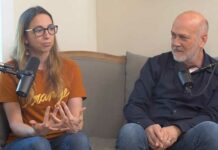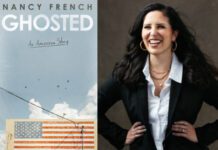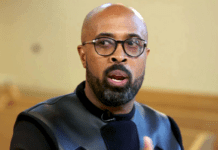Joel Hunter is probably best known for his attempts to broach the subject of climate change, social justice and developing interfaith partnerships in the American evangelical church. After 32 years of leadership at Northland Church in Longwood, Florida, though, Hunter is done.
“My call to the pastoral role in the church is fulfilled,” Hunter told the board of elders and executive staff at Northland. The 69-year-old senior pastor announced his intention to leave on Wednesday, August 2, 2017, after returning from an annual sabbatical.
Hunter is respected in his own congregation and also across religious lines, largely due to his conviction that “no one group could do the job of caring for the needs of the community and the world alone,” as summarized by Rev. Bryan Fulwider of the United Church of Christ. Echoing those sentiments, Rev. James Coffin, executive director of the Interfaith Council of Central Florida, says, “Joel defies stereotypes and labels.”
The driving force behind Hunter’s ministry has been to “follow Jesus and serve the vulnerable” as he explains in a letter written to his congregation. This force has driven him to make some pretty controversial stands over the years.
In 2016, Hunter had a role in the efforts to help the Orlando area recover from the Pulse Nightclub shooting, which left 49 people dead. Hunter received a call from a member of his church, a first responder to the incident, moments after it happened. He rushed to the scene to minister to the trauma-stricken people involved. The incident had a profound effect on Hunter, an experience he wrote about for Religion News Service.
Hunter was also on the program to lead a prayer at gathering of more than 2,500 mostly-white Christians to pray for the terror-stricken city. However, instead of delivering the prayer when it was time, Hunter stepped aside and gave the mic to Victoria Kirby York, who is on the National LGBTQ Task Force. Hunter cited his inability to speak due to his always having been privy to a powerful, majority community, and lacking experience of being “part of a vulnerable or a persecuted community.”
This is typical of Hunter’s approach to polarizing situations. He came to Christ while being involved in the Civil Rights movement. For Hunter, social justice and Christ have been intimately connected to one another from the beginning of his Christian walk. In the letter explaining his departure to his congregation he shares this:
“When I knelt at the altar to give my whole life to Jesus, I was a part of the Civil Rights movement. My focus on Jesus was not only for personal salvation after this life but also for compassion towards the marginalized in this life. My call to follow Jesus and serve the vulnerable is stronger than ever.”
Hunter has served the church world in various capacities, having been a spiritual advisor to President Obama, and currently serves on the board of the National Association of Evangelicals and the World Evangelical Alliance.
As far as what is to come, Hunter hints at ministry work outside church walls in his letter. “Jesus often taught in different synagogues but the bulk of his teaching and work was outside established religious settings. Following his way, I will seek to include the unincluded in the Kingdom.”












